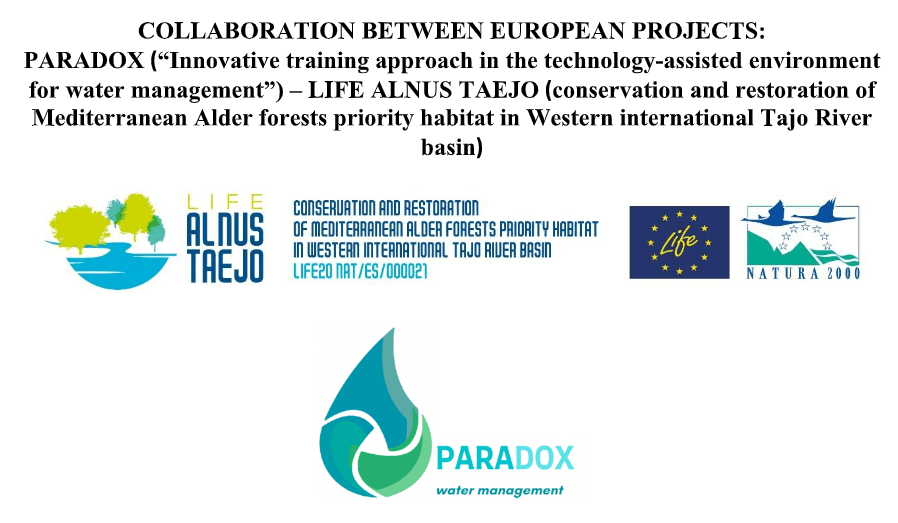Mediterranean region is one of the most vulnerable areas in the world to the effects of climate change. Among the main affected natural values will be the riparian forests, due to the worsening of the virulence and frequency of large forest fires, the loss of water availability, and the increase of pests and diseases, due to the rise in temperatures and extension of summer drought periods. Mediterranean alder forests, or residual alluvial forests, priority habitat 91E0* are essential forests for the stability of rivers dominated by Alnus glutinosa. This valuable ecological and hydrological habitat 91E0* of the Western Tajo River basin is seriously threatened, and in long stretches of historic presence it is already non-existent.
The LIFE ALNUS TAEJO is a project led by the UPM, composed of partners from the Iberian Peninsula (Spain and Portugal), and its main goal is to increase the area of Habitat 91E0* in the Tagus River in 1032 ha (516 km of streams), habitat which now only represents 14% of the length of the river basin. In Portugal the legislation on the ownership of water courses determining that they are overwhelming private turns the continuity of the project problematic. Nevertheless, the demands of the present law regarding the management of watercourses in order to increase their global ecological quality and functionality will enable us to establish management contracts with the owners allowing a long-term management of the areas to be restored. The cooperation of NGOs already working in the region and with experience in this monitoring work, as well as NGOs with experience in establishing and developing these management contracts will be ensured.
One of the main interests of these projects in the Portuguese case is their demonstration character allowing a generalization of the adequate management practices which must be conducted by the landowners according to the law.
The absence of knowledge and practical guidelines is presently a handicap for an adequate management, situation that LIFE ALNUS TAEJO project will help to reverse. In addition, in the face of this lack of knowledge, other projects have emerged to establish synergies and common working methods. This is the case of the PARADOX project.
The impacts of climate change on water availability and water quality affect many sectors, including energy production, infrastructure, human health, agriculture, and ecosystems. And these are the main topics that centralized the efforts of PARADOX Project.
PARADOX arises from a Strategic Partnership composed of seven entities from regions that are highly influenced by climate change: Five universities and three SMEs /technical research and training centers.
With the aim to develop an international Master’s Degree Modules Programme for the Climate Change and Water Security in Europe, which will offer an adapted curriculum to equip the young generation with the specific, basic and transversal competences currently required in the related industries.
This Strategic Partnership project proposes the creation of a flexible learning pathway in line with the needs of learners and companies in meeting environmental targets and securing sustainable conditions for EU citizens. It also provides a joint study modules program between Higher Education and Vocational Education and Training that will capitalize companies with prepared youth, providing enterprises innovation, expertise, and added value.
The UPM team is the leader of the LIFE ALNUS TAEJO project and is a member of the PARADOX project consortium. Therefore, both projects are expected to work together on the common issues they face, focusing on water management, riverbanks and European legislation on hydrology.
For more info:
ACKNOWLEDGEMENTS
The LIFE ALNUS TAEJO project (LIFE20 NAT/ES/000021) has received funding from the LIFE Environment and Climate Action Programme, the European Union’s financial instrument dedicated to the environment. The project was approved in the 2020 call for proposals with a budget of around four million euros and is scheduled to end in August 2025. The members of the consortium are Universidad Politécnica de Madrid, Universidade de Évora, CESEFOR Foundation, Centro Tecnológico Nacional Agroalimentario CTAEX, AMBIENTA Ingeniería y Servicios Agrarios y Forestales, and ECOSALIX Sistemas Ecológicos de Engenharia Natural.
The contents of this publication are the sole responsibility of Universidad Politécnica de Madrid, and do not necessarily reflect the views of the European Union.


